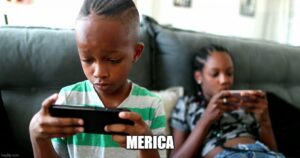There are many pros and cons to social media but as educators I think it is essential that we understand the cons associated with it. Research states that over 90% of teenagers are using social media in the United States. This is a huge number and a growing concern for parents and educators if social media is not used right and teenagers don’t understand digital citizenship.

In the TikTok: Eating disorders, racism, censorship and distorted realities documentary there were a number of concerning states or stories but one of the biggest concerns is that algorithm that TikTok uses. Their algorithm is so advanced that it can pick up on what it thinks are your interests after viewing a single video. The story of the girl with the eating disorder was a perfect example of that and how the algorithm continuously fed her triggering content. As a high school teacher, I know that I have many students who can be triggered by different content so it is important to educate them on the signs that this might be happening to them and encourage them to only pursue positive content.
The other comment that was concerning me in that documentary is something that I am also seeing as a parent. One of the girls stated, “I think all kids want to be influencers”. I have two young daughters, and I don’t know if that is what they want to do but I know that they love making videos of themselves on an old phone. They aren’t allowed to or even ask to post any videos, for them it is just a fun thing to do but they have seen enough YouTube videos that they finish some videos with “subscribe and like”. My concern with children wanting to be influencers is that it means they are likely spending a lot of time watching and creating content and we know that not all the content that is out there is safe. It is also not healthy to spend our lives attached to a screen whether you are watching or performing.

The Amanda Todd story is a very scary realization of what is possible in the online world. I think the biggest thing to take away from this story as a teacher is that we need to make our students digitally safe. They need to understand the worst-case scenarios. These are not fun topics to explore but they could save lives. It is also equally important for students to understand the consequences of being on the other side, being the cyber bullies or blackmailers. These people are can potentially ruin a person’s life, for what? We need to have these difficult conversations to ensure that our students and children have the best lives we can give them and are able to use technology and social media as it should be used, as a powerful tool for connecting people in a positive way.
What are some ways that we can teach our students the dangers of social media without lecturing them or boring them? What are some resources that you have used?
#IStartedMakingMemes

I too have a daughter, she is only 5 and I will sometimes hear her say things like your daughters when she plays and talks to herself (only child lol). I too find it concerning as a parent. I feel a little helpless, but I what we can do is educate them on the importance of safety and digital citizenship and what is out there on the web. When I watched the Amanda Todd story all i could think of was “I bet that father is upset at himself for allowing her all that freedom on the internet.” I felt bad for him because as a parent that would be the most devastating thing that could happen. But at the same time, I know that man would have some regrets about how he handled her freedom. I believe he even stated that. We can all learn from their story. So tragic.
Thanks for sharing your thoughts.